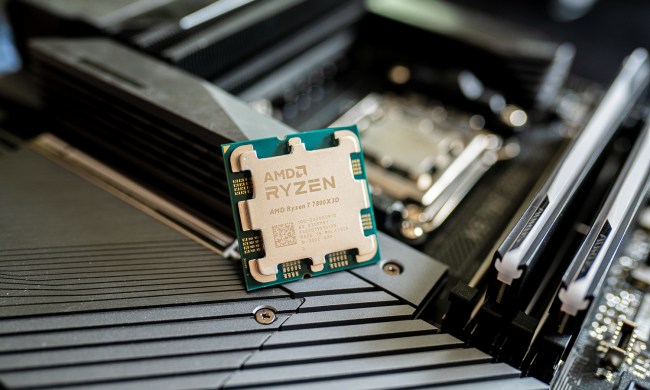AMD has just announced the release of two new Accelerated Processing Units (APU) — the Ryzen 7 5700G and the Ryzen 5 5600G. Combining a CPU and GPU into one, these units are AMD’s response to Intel’s onboard graphics solutions. The company also talked about four new AMD Ryzen Pro 5000-series processors that are set to hit the market soon.
The last APUs launched by AMD were a part of the Ryzen 3000 Series. With this big of a jump, some kind of performance gain is inevitable. However, going by AMD’s benchmarks and the specifications of the new units reveals a lot of promise that goes beyond what you’d expect from an APU.
Both of the new models are 65-watt processors built for desktops and laptops. Ryzen 7 5700G is an eight-core, 16-thread APU with an up to 4.6 GHz clock speed, a 16MB L3 cache, and eight CUs (control units). The slightly less powerful sibling, Ryzen 5 5600G, is a six-core, 12-thread CPU. It comes with a 16MB L3 cache and seven CUs.

AMD promises impressive performance from the integrated graphics card, allowing content creators and gamers to consider the new Ryzen G-series APUs for their budget setups. The company’s internal benchmarks reveal that the Ryzen 7 5700G offers 1080p gaming with an average of 78 frames per second (fps) on high settings. Comparing this model to an Intel Core i7-11700 processor shows an up to 2.45x increase in frames in some titles.
Of course, the gaming performance may vary depending on the title that you’re playing. When it comes to GPU-bound games, such as Shadow of the Tomb Raider, you won’t see a major improvement compared to previous APUs. However, CPU-bound games such as League of Legends might see an up to 60% boost.

When it comes to the new Ryzen Pro desktop processors, AMD announced four new models made especially for business users — the AMD Ryzen Pro 5000 G-Series and GE-Series. The former were created for small form factor PCs, while the latter are aimed at ultrasmall desktops.
These processors are not going to be RDNA 2 based — instead, they will use Vega just like their mobile counterparts. AMD is transitioning to Zen 3 cores, improving performance and power efficiency. The Pro CPUs were built for space-saving, quiet, and cool setups, so their power usage is low — 65W and 35W for G-Series and GE-Series respectively.

The new G-Series processors offer up to eight cores and 16 threads, up to 4.6GHz, and a maximum 20MB cache. All of them feature a 7nm process node. AMD emphasized the importance of security in these processors, highlighting features such as AMD Shadow Stack to prove that safety was treated as a priority.
While we don’t know the pricing and availability of the new Pro series CPUs, AMD revealed that the new APUs are going to hit the market on August 5 this year. The Ryzen 7 5700G is going to be priced at $395, and the Ryzen 5 5600G — at $259. If the performance promised by AMD holds true, these CPU and GPU combos might make for interesting additions to budget desktops.




